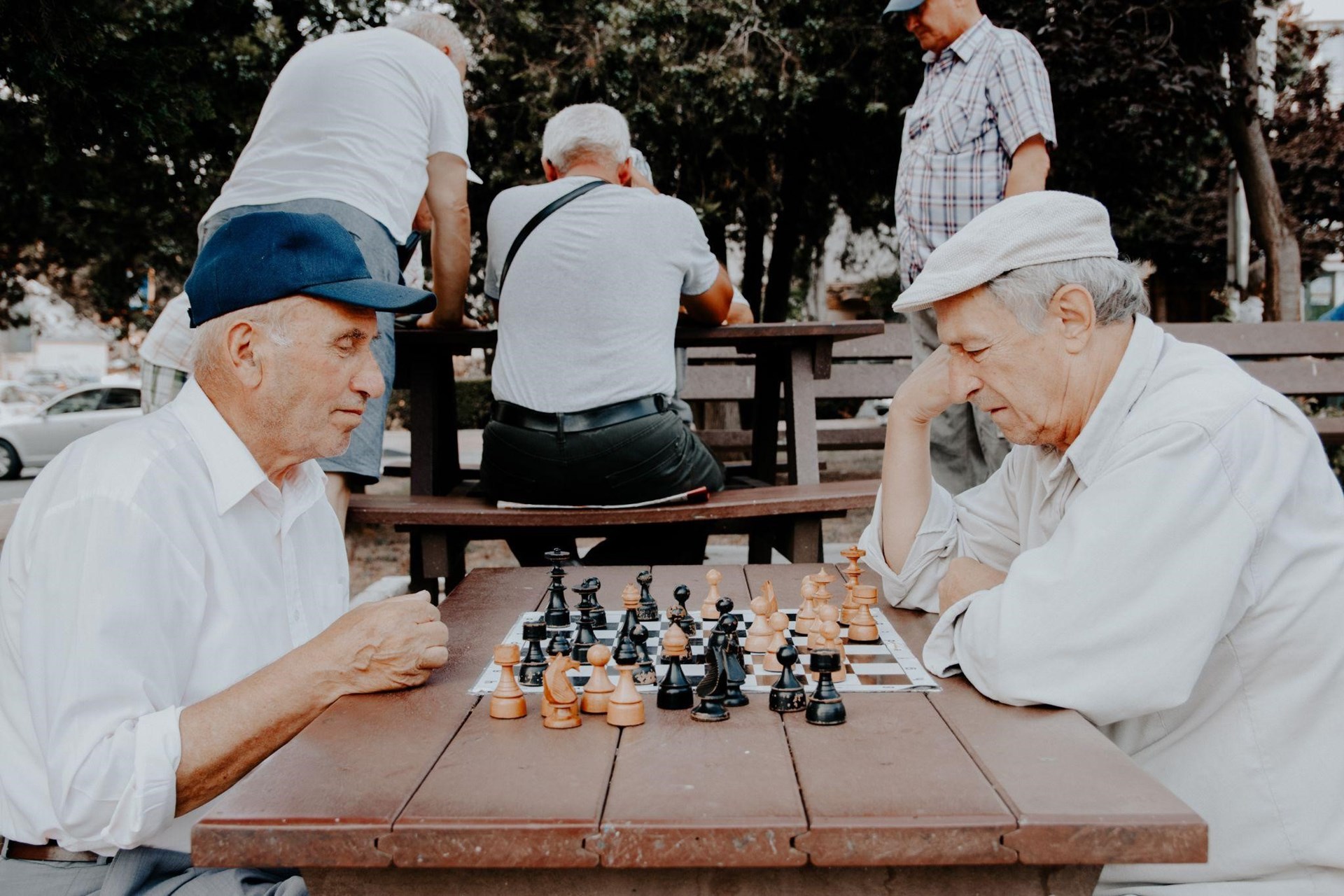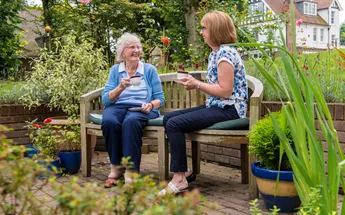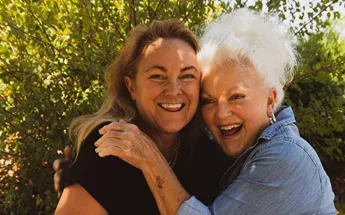Loneliness is a common and often overlooked issue that many older people face. As we age, our social circles and friendship groups may shrink, as well as the experience of the loss of loved ones, which can lead to feelings of isolation and loneliness.
While loneliness can be a challenging emotion to navigate, Michelle Quill shares six strategies to help older people cope and find a sense of belonging and connection.
Understanding loneliness in old age
Loneliness is a common and often overlooked issue that many older people face. As we age, our social circles may shrink, and we may experience the loss of loved ones. This can lead to feelings of isolation and loneliness. It's important to understand that loneliness is not just a fleeting emotion but also a serious concern that can have a significant impact on both mental and physical health.
Loneliness in later life can be characterised by a lack of meaningful social connections and a sense of feeling disconnected from others. It is not simply being alone, but rather feeling alone and unsupported. Loneliness can lead to a decline in overall well-being, including increased risk of depression, anxiety, cognitive decline, and even physical health problems such as cardiovascular disease and weakened immune function.
The impact of loneliness on mental and physical health
Loneliness can have a profound impact on mental and physical health in older adults. Studies have shown that chronic loneliness increases the risk of developing depression and anxiety disorders. It can also contribute to cognitive decline and the onset of dementia. Additionally, loneliness has been linked to higher levels of stress and inflammation in the body, which can lead to a weakened immune system and an increased risk of developing chronic illnesses.
From a physical health perspective, loneliness has been associated with increased blood pressure, higher levels of inflammation, and a weakened immune system. It can also affect sleep patterns and lead to a sedentary lifestyle, which can further exacerbate health issues. Loneliness can have a detrimental effect on overall well-being and quality of life, making it crucial to address and find effective strategies to combat it.
Common causes of loneliness in old age
There are several common causes of loneliness in old age that can contribute to feelings of isolation and social disconnection. One of the primary causes is the loss of a spouse or close friends. As we age, we may experience the death of loved ones, leaving us feeling alone and without the support system we once had.
Retirement can also be a significant contributor to loneliness, as it often involves a loss of daily social interactions and a change in routine.
Physical limitations and health issues can also contribute to loneliness. Older adults may find it more challenging to engage in social activities or may be unable to leave their homes due to mobility issues. Additionally, changing social roles and a lack of new social connections can make it difficult to form meaningful relationships in old age.
Another common cause of loneliness is a lack of access to transportation or limited mobility. Older adults who are unable to drive or have limited access to public transportation may find it challenging to socialise and connect with others. This can lead to increased feelings of isolation and loneliness.
Strategies for coping with loneliness
While loneliness can be a challenging emotion to navigate, several strategies can help older adults cope and find a sense of belonging and connection. Here are six things you can do when dealing with loneliness in later life:
1. Connecting with others: The importance of social support
One of the most effective ways to combat loneliness is by connecting with others and building a support network. Reach out to family members, friends, and neighbours. Join community groups or organisations that align with your interests. Volunteering can also be a great way to meet new people and make a positive impact.

2. Engaging in meaningful activities to combat loneliness
Finding activities that bring you joy and a sense of purpose can help combat loneliness. Consider pursuing hobbies, joining clubs or classes, or even starting a new project or learning something new. Engaging in activities that you enjoy can help boost your mood and provide opportunities for social interaction.
3. Seeking professional help for loneliness in old age
If feelings of loneliness persist or become overwhelming, seeking professional help can be beneficial. A therapist or counsellor can provide a safe space to explore your emotions and develop coping strategies. They can also help you identify any underlying issues contributing to your feelings of loneliness and provide guidance on how to address them.
4. Creating a support network: Joining community programs and organisations
Joining community programs and organisations can provide a sense of belonging and social connection. Look for local day centres, community centres, or clubs that offer activities and events specifically tailored for older people. These programs often provide opportunities to meet new people, engage in social activities, and build a support network.
5. The role of technology in combating loneliness
Technology can be a valuable tool in combating loneliness in later life. Explore social media platforms to connect with friends and family members, join online communities or forums centred on your interests, or participate in virtual events and classes. Additionally, video calls and messaging apps can help bridge the distance between loved ones and provide a sense of connection.
6. Finding fulfilment and happiness in later life
Lastly, it's important to focus on finding fulfilment and happiness in your life. Engage in self-care activities such as exercise, meditation, or spending time in nature. Cultivate gratitude and practice positive thinking. By focusing on your own well-being and finding joy in the present moment, you can combat loneliness and create a fulfilling life.
Discovering contentment and joy in older age
Loneliness in old age is a significant concern that can affect both mental and physical health. By understanding the causes of loneliness and implementing strategies to combat it, older adults can find a sense of belonging, connection, and fulfilment. Remember to reach out to others, engage in meaningful activities, and seek professional help if needed, join community programs and organisations, utilise technology, and focus on your own well-being. By taking proactive steps, you can overcome loneliness and create a happy and fulfilling life in your older years
Next steps
Helping older people in your community
Read our top six ways you can safely help support older and vulnerable people in your local community.
The benefits of friendships for older people
Friendships have many benefits, including benefits to your overall health and wellbeing. We look at some of the benefits of friendships in older people, how to maintain friendships and how you can make new friends as an older person.
Loneliness in later life | Useful contacts
These organisations offer fantastic advice and support for helping to overcome loneliness in later life.


